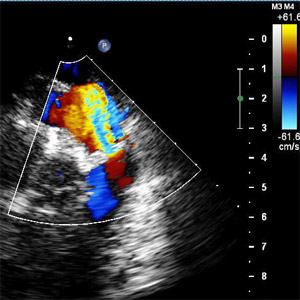 NEWS
NEWS
 NEWS
NEWS
 NEWS
NEWS
![]() Ultrasound scanners are used to image the human body for diagnostic purposes. However, the scanners that are widely used in hospitals and clinics and are usually fairly large, expensive, and therefore unwieldy.
Ultrasound scanners are used to image the human body for diagnostic purposes. However, the scanners that are widely used in hospitals and clinics and are usually fairly large, expensive, and therefore unwieldy.
Now with wireless networks, Internet, connectivity, bandwidth capacities, the huge popularity of smartphones, and cloud computing–capable of storing enormous volumes of data–we have a convergence of tools that can be applied to medicine.
American scientists have invented world’s first ultrasound imaging system for smartphones that uses wireless technology to transmit diagnostic scans. Once plugged into a smartphone or tablet, the MobiUS scanner provides an instant scan image on the mobile device’s screen.
The MobiUS device has been designed to be used in a wide range of imaging processes, including cardiac, abdominal, fetal and pelvic. Currently, it is available in its native Windows tablet and smartphones, but the company is working on versions compatible with iOS and Android.
The MobiUS is retailing at $9,000, making it cheaper than traditional ultrasound imaging systems which often cost in the range of $100,000. The low cost of the device can revolutionize healthcare in developing countries where the technology is not widely available.
“Ultrasound imaging is safe, effective and can save lives, however more than 70 per cent of the world’s population does not have access to ultrasound because it is expensive and not portable enough,” Sailesh Chutani, CEO of US creators MobiSante, said to the Daily Mail UK. “Devices like MobiUS enable more care to be provided outside of expensive settings like hospitals into settings that are less expensive, such as clinics and other locations where the patient needs immediate care. This is key to improving access while reducing costs.”
Doctors and medical professional hope to benefit from the new mini-scanner, as they can able to carry it around hospital wards to check on patients internal organs much easier. The scanner doesn’t require a power source to operate and has wireless and 3G connectivity that’ll send images from the handset scanner to a terminal back at the office or hospital.
“MobiUS has built in network connectivity which allows easy sharing of images from the device, for storage as well as for second opinion or remote diagnosis. The device starts in less than a minute and since it is battery powered, it can work off the electric grid,” said Chutani.
The company said MobiUS fuses the power and wireless connectivity of a smartphone with the internet into a game-changing diagnostic solution that is personal and accessible.
Several innovative medical devices and applications are already on the market. California-based company AliveCor has launched a mobile heart monitor used to track vital statistics such as blood pressure and heart rate.
The Entrada app for iOS devices will help improve physician output with an improved level of technology and mobility. MedXVault allows patients the opportunity to share medical records with their doctors. Through MedXVault, patients can securely manage their healthcare profiles that may include medications, allergies, ailments, surgical histories, hospitalizations, immunizations, contacts and insurance details.
Support our mission to keep content open and free by engaging with theCUBE community. Join theCUBE’s Alumni Trust Network, where technology leaders connect, share intelligence and create opportunities.
Founded by tech visionaries John Furrier and Dave Vellante, SiliconANGLE Media has built a dynamic ecosystem of industry-leading digital media brands that reach 15+ million elite tech professionals. Our new proprietary theCUBE AI Video Cloud is breaking ground in audience interaction, leveraging theCUBEai.com neural network to help technology companies make data-driven decisions and stay at the forefront of industry conversations.